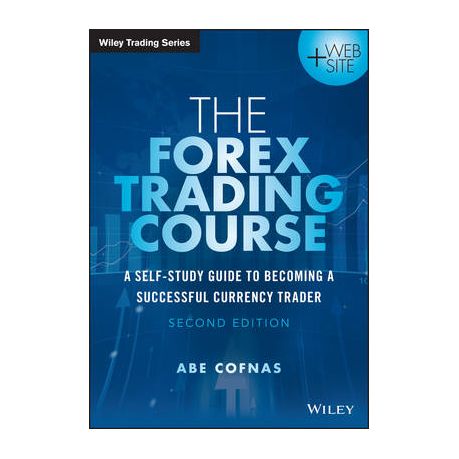The Ultimate Forex Trading Course for Learning Money Markets
The Ultimate Forex Trading Course for Learning Money Markets
Blog Article
Understanding the Fundamentals of Currency Exchange in Today's Global Market
In an increasingly interconnected international economic climate, understanding the basics of currency exchange is vital for stakeholders throughout various markets. Currency exchange rate, shaped by a complex interplay of economic signs and geopolitical aspects, have extensive results on global trade and financial investment strategies. As reserve banks put in impact and technological advancements improve money trading, the effects for global commerce are significant. Just how do these elements coalesce to influence financial planning and danger administration? Comprehending the subtleties of this dynamic market is not simply beneficial-- it is important for navigating today's economic landscape.
The Fundamentals of Money Exchange
Money exchange is a basic aspect of the worldwide economic situation, promoting international trade and investment. It entails the conversion of one money into another and is vital for businesses, federal governments, and people who engage in cross-border transactions. The currency exchange process takes location in the international exchange market (Foreign exchange), which is the largest and most liquid economic market in the world, running 24-hour a day, 5 days a week.
At its core, money exchange is driven by supply and need characteristics. Money are sold pairs, such as EUR/USD or GBP/JPY, and the currency exchange rate in between them suggests just how much one money is worth in regards to one more. This rate varies continuously due to trade flows, capital movements, and other market activities.
Individuals in the Foreign exchange market array from huge economic organizations and international companies to private financiers and travelers. Each individual might have various objectives, such as hedging versus exchange rate danger, guessing on currency motions, or assisting in global purchases. Comprehending the basics of currency exchange is vital for making notified choices in the international market, as exchange prices can significantly affect the expense of items and solutions, financial investment returns, and economic stability.
Variables Influencing Exchange Rates
Greater passion prices supply lending institutions much better returns relative to various other countries, bring in even more international capital and creating the currency to appreciate. Conversely, inflation rates play a crucial duty; money in nations with lower inflation rates often tend to value as purchasing power increases family member to higher-inflation economic situations.
Financial development and stability additionally considerably effect currency exchange rate. A robust economic climate attracts international financial investment, enhancing need for the domestic currency, which leads to appreciation. Additionally, trade balances affect currency worth. A country with a significant trade excess usually sees its money value as a result of increased international demand for its items and services, while a profession deficiency can compromise the money.
Political stability and economic performance are essential too; countries viewed as low-risk locations for financial investment often tend to see their money value. forex trading course. Market speculation can also drive exchange rate variations, as traders prepare for future movements based on existing economic signs and geopolitical occasions. These aspects collectively add to the vibrant nature of currency exchange rate in the international market
The Duty of Central Financial Institutions

Reserve banks additionally take part in international exchange interventions to deal with excessive volatility or misalignments in exchange prices. These treatments could entail buying or offering foreign currencies to preserve a preferred exchange price degree. In addition, reserve banks hold considerable fx books, which can be deployed tactically to sustain their currency.

Modern Technology and Currency Trading
While main financial institutions shape the overarching landscape of currency exchange, technical advancements have changed the auto mechanics of currency trading itself. The spreading of electronic systems has actually democratized access to forex markets, making it possible for individual investors to take part alongside institutional investors. On the internet trading platforms, equipped with real-time information and analytical tools, facilitate notified decision-making and have added to boosted market liquidity.
Mathematical trading, powered by sophisticated software application, has reinvented the speed and efficiency of money trading. Algorithms perform professions based on predefined standards, reducing human intervention and reducing the time required to utilize on market motions.
Blockchain modern technology likewise assures a transformative influence on money trading. By guaranteeing openness and reducing purchase expenses, blockchain can enhance settlement procedures, possibly mitigating threats connected with conventional trading techniques. Cryptocurrencies, underpinned by blockchain, have actually introduced a new measurement to money trading, triggering market individuals to adjust to a developing financial ecological community. As modern technology remains to advance, its impact on currency trading will likely strengthen, forming future market characteristics.
Effects on Global Trade
In the interconnected landscape of global profession, money exchange read this post here plays a pivotal duty in shaping financial partnerships in between nations. A solid money can make a country's exports more expensive and less attractive on the international phase, potentially minimizing market share.
Currency changes can also bring about financial unpredictabilities, complicating lasting preparation for multinational corporations. Companies commonly hedge versus these threats via financial instruments to maintain expenses and profits. Additionally, exchange prices influence international direct financial investment (FDI) choices, as financiers seek desirable conditions to make the most of returns, impacting resources streams across borders.
Additionally, governments make every effort to keep stable exchange rates to foster foreseeable trading problems, occasionally intervening in forex markets to achieve economic objectives. Central banks may change rate of interest prices or apply financial my review here plans to affect money strength, consequently influencing trade characteristics.
Conclusion
An extensive grasp of currency exchange fundamentals is vital for navigating the complexities of the global market. Exchange rates, formed by passion prices, rising cost of living, and financial development, are critical in establishing currency appraisals.
Report this page